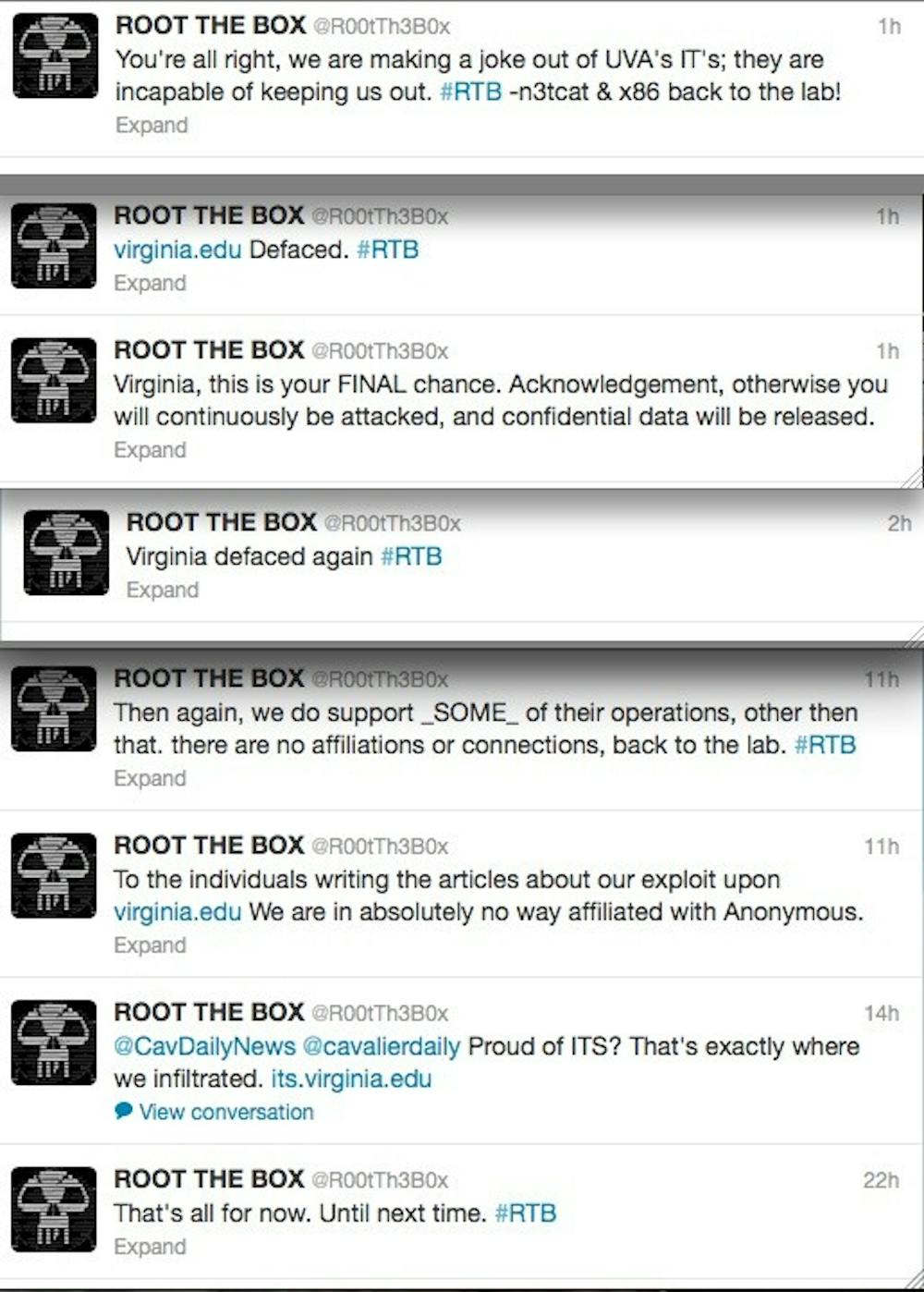“UVa hasn’t changed a bit since I attended,” the ominous message read, tweeted from hacker @R00tTh3B0x last night around 11:15 p.m.
The fierce battle between the University’s Information and Technology Services and an anonymous hacker @R00tTh3B0x continued Tuesday evening as the hacking war stretched into its 24th hour.
The University’s homepage was first compromised around 9:10 p.m. Monday evening, and after an uneventful day the website was once again taken over by the hacker group Tuesday at 7 p.m. In addition to featuring a skull symbol and redirecting to the hacker’s Twitter page, the group also included a message for ITS: “If you admit your security fails and acknowledge #RTB for our actions we’ll leave you alone. Otherwise, you’ll continue to feel the wrath.”
@R00tTh3B0x, an unidentified Twitter account, said it had obtained access to confidential information about University students and that it was going to hack personal email inboxes.
“We did exploit UVa through their ‘honors’ wordpress,” the hackers told Cavalier Daily columnist Andrew Kouri in an interview through an encrypted chat website CryptoCat.
The account tweeted Monday that the group is not politically motivated or affiliated with the University or the official Root the Box hacking competition.
“We hacked it because we can … for fun, and because of the University’s lack of security,” the account tweeted. “That sums it up.”
ITS representative Mark Smith said that all information concerning the website defacement would come directly through University administration.
Both ITS and the Web Communication team are continuing to investigate the website’s defacement, University spokesperson McGregor McCance said. An official University statement also said that contrary to the hackers’ claims, the University’s mail system was not affected and no confidential information was compromised.
“All I can disclose is: RTB1 will be a nightmare for UVa,” the hackers told Kouri. “[We demand for ITS] to apologize to the community, and to admit that we have access to plenty of data that they say we don’t.”







